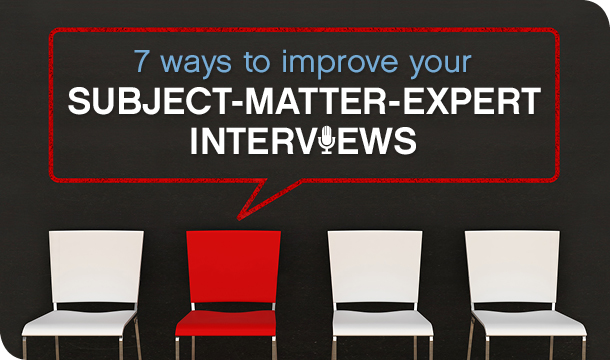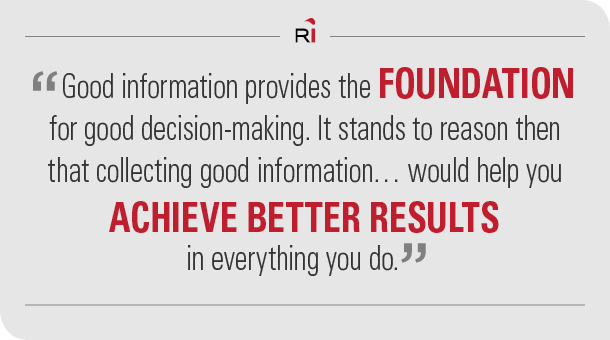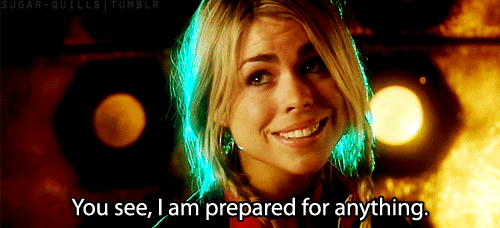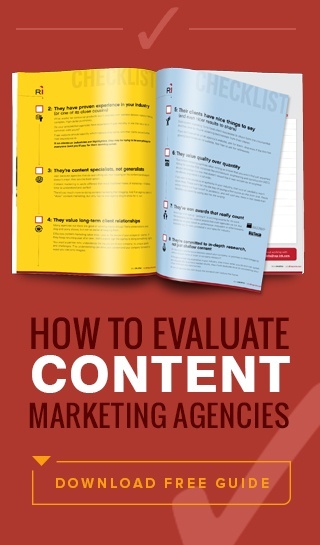Content marketers: 7 ways to improve your subject-matter-expert interviews

Get the information you need to create persuasive, insightful content by conducting better interviews
I’ll let you in on a little-known secret that sets great content marketers apart from the good ones. It’s not the writing. It’s not video production skills. It’s not even research.
Don’t get me wrong — those are important. But the real secret sauce? Conducting great interviews.
In his book, “The Human Skills: Elicitation & Interviewing,” author Frank Stopa says that the ability to collect good information is the difference between success and failure in almost any endeavor.
Stopa says: “Whether you are working in sales or business strategy, law enforcement or intelligence, education or politics, you rely on collecting information. Good information provides the foundation for good decision-making. It stands to reason then that collecting good information, more effectively, more efficiently, and while building stronger working relationships, would help you achieve better results in everything you do.”
We agree. As a business-to-business content marketing firm, we spend our days translating complex information into relatable, shareable and persuasive stories. Our clients are lawyers, engineers, architects and technologists. In short: experts.
Our biggest challenge in developing our clients’ stories? Getting the information we need from them.

That’s not our clients’ fault. These professionals (who we call subject-matter experts or, for short, SMEs) are not only busy, but they operate in a niche world, with their own language, norms and technical knowledge. They aren’t accustomed to thinking about how their prospective clients think about their work, how to explain abstract concepts or what information will resonate most with a prospect. They simply know what they know — and they know it well.
To create great content to market these professionals’ firms and companies, our team must draw out the SMEs’ knowledge and turn it into stories that will persuade prospective clients to do business with them. Here’s how we do that (and how you can, too):
1. We insist on conversations
We nearly always insist on conducting telephone or in-person interviews instead of receiving written responses to questions or writing content from existing materials. By actually talking to a SME, we dig deep, make sure we understand the concept enough to create great content and ask probing questions that, many times, change the strategic direction set forth before the interview was conducted.
2. We never go in cold
We always research the topic in advance so we can ask smart questions. If you’re a busy expert, how frustrating is it to have to explain things that one can easily find on the internet? (That’s when the uber-snarky LMGTFY comes in handy.) Researching the topic in advance also helps us understand what’s out there already (which informs strategy) and ensures we can probe where we need to and move the conversation in the right direction.
3. We develop a list of questions
Conversations can be unpredictable and take you in unanticipated directions. With a list of prepared questions, we ensure we get all the information we need and keep the interview on pace. We make sure to ask open-ended questions, not closed-ended ones that elicit “yes” or “no” answers, providing very little context or substance.
4. We’re OK with sounding stupid
Fear of appearing stupid is an interviewer’s death knell. If you don’t understand what the SME is saying, you’ll never create great content. It’s critical to overcome the fear associated with interviewing highly technical experts and forcing them to talk at a level that any layperson can understand.
However, this requires a skilled, highly confident interviewer, who can explain to a SME why she needs certain concepts explained, who knows when to stop the flow of conversation to get clarity on concepts and who can gently push a SME who feels “above” the conversation.
We find it helpful to remind the SME that our area of expertise is content marketing, and the SME’s area of expertise is just that — his.
5. We paraphrase and clarify
We say things like: “Here’s what I heard you say…. Is that correct?” Or “So what you’re saying is…. Does that capture it?” By repeating what the SME said — while we’re interviewing him — we ensure that we don’t have to come back and waste the SME’s time later on.
This practice is also rooted in psychology. According to FBI behavioral analyst Jack Schafer, Ph.D., people have an innate need to correct others. He says: “If the presumptive is correct, people will affirm the fact and often provide additional information. If the presumptive is wrong, people will provide the correct answer usually accompanied by a detailed explanation.” Thus, by rephrasing — even if you’re wrong — you’ll force the SME to listen to how they just communicated their information and clarify any points that may have been miscommunicated or misheard.
6. We always, always record
While we’re great interviewers and notetakers, sometimes we need to go back and listen to an interview to understand our notes. And, because we’ve worked with most of our clients for many years, we have many interviews saved from years ago. This helps when a client needs to tackle an older topic and we can refresh our memory by simply listening to a SME interview we conducted on the topic years ago, rather than asking for that professional’s time again.
7. We push, prod and push some more (to the point of being slightly annoying)
Some SME interviews are easier than others. Every now and then you get that rare SME who serves up the information on a silver platter (hallelujah!). But more often than not, we have to push for the information we need. In those cases we use probing questions such as:
-
-
- How so?
- Can you give me an example of that?
- Why do you think this is the case?
- Could you tell me more about your thinking on that?
- I’m not quite sure I understand …Could you please tell me more?
- You just told me about… I’d also like to know about…
- What’s another way you might…?
- How is…different from…?
- When have you done/experienced something like this before? What does this remind you of?
- What criteria do you use…?
- How did you decide/determine/conclude…?
- What if the opposite were true? Then what?
- What are the common objections to this? How do you counter them?
- That’s interesting. Would you explain the background to that?
- What would the implications of that be for…?
-
Thorough research and effective subject-matter-expert interviews are hallmarks of a great content marketing agency. Discover what else you should look for in an agency by downloading our free guide:
Photos: DeltaDin (Doctor Who); VH1 (Shaunie’s Home Court); Gratisography (Can Communication)












